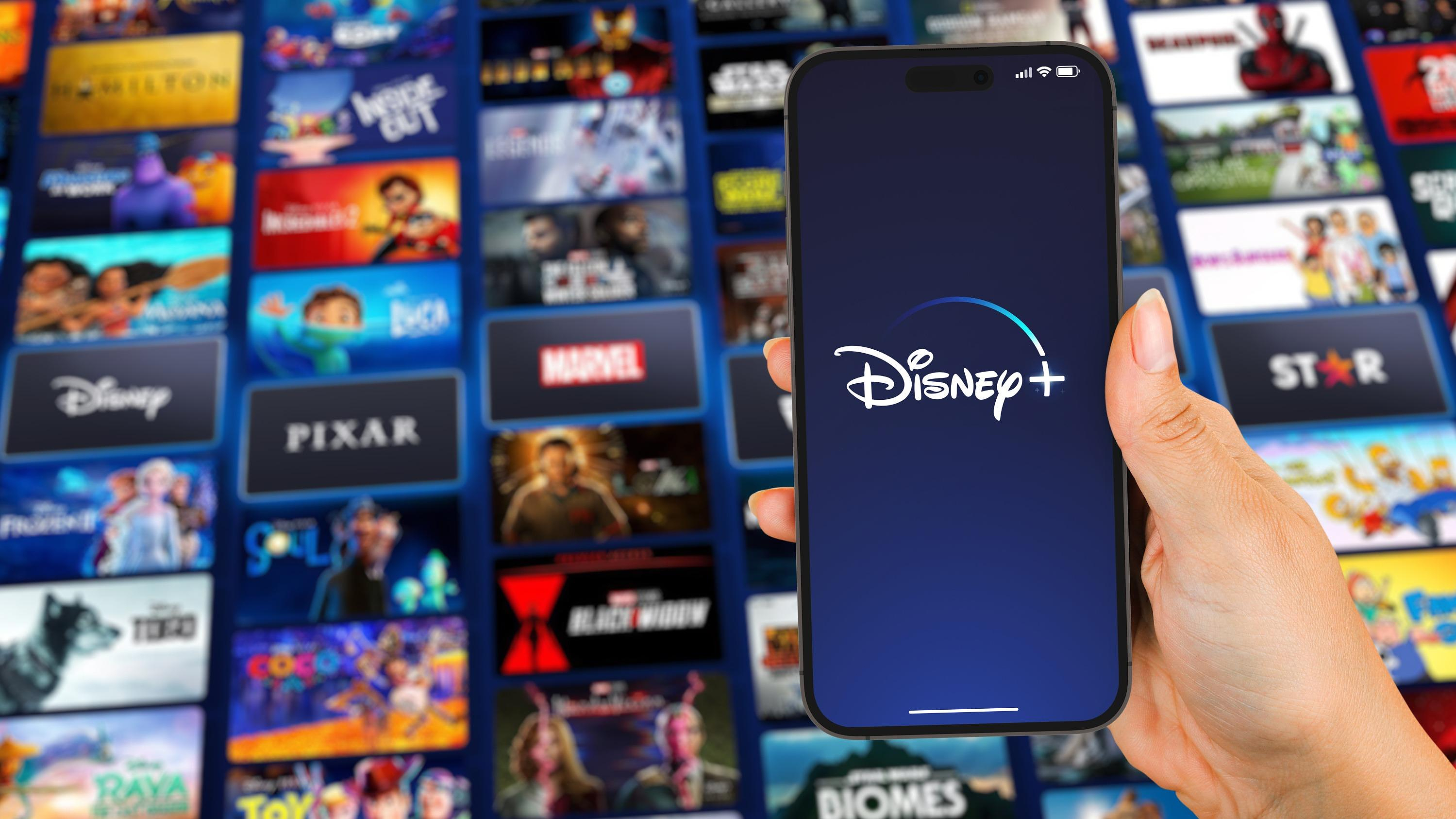“It will be funny for me to go back to the time when I flipped between channels and listened to my music interspersed with ads on YouTube,” exclaims Delphine. Cornered by soaring prices on the shelves, this single mother decided to give up all of the streaming subscriptions to which she had subscribed for several years: Spotify, Netflix, Disney. “We had to make a choice,” she sighs, a hint of resignation in her voice. Like her, many users would be ready, according to a study by the BearingPoint firm, to give up one or more of their streaming subscriptions due to inflation: this would be the case of one in 2 subscribers for Spotify, two subscribers out of three for Disney.
Over the years, subscriptions to “streaming” services (video, music, video games) have taken a growing share of household budgets. According to BearingPoint, the French have, on average, three streaming subscriptions, all categories combined. 65% of them have at least one SVoD service among the market giants (Netflix, Amazon Prime Video, Disney) and a significant proportion of households have several: more than half of Netflix customers also subscribe to Prime services Video and Disney. Upon arrival, households would spend on average 42 euros per month on streaming. Or an amount more or less equivalent to that of their Internet access bill.
It must be said that a few years ago, the bill was much lighter and the offers more attractive. Free trials galore, subscriptions less than 10 euros... The streaming giants have relied on aggressive pricing policies to win over consumers around the world. To continue growing in “mature” markets, platforms now have no choice but to increase average revenue per subscriber (ARPU). That is to say, more prosaically, to raise their prices.
Few streaming services have not revised their offers upwards this fall. The latest entrant to the arena, Apple TV has increased its basic offer from 6.99 to 9.99 euros per month, an increase of 43%. Same trend at Disney, whose Premium offer exceeded 11 euros on November 1. Undisputed market leader, Netflix has increased several of its prices, like the “premium” offer, increased from 17.99 to 19.99 euros per month and the “essential”, increased by 7.99 euros to 10.99 euros. At this price, the image definition is limited to 720p, far from the “excellent” quality enjoyed by subscribers of the higher tier. Only the prices of the “Standard” (13.49 euros) and “with advertisements” (5.99 euros) offers remain unchanged for the moment.
French users are having difficulty digesting this general surge in prices. Like Delphine, Céline just gave up Netflix last month. This 27-year-old from Var considers the increases imposed by the streaming giant “exaggerated”. However, it was not the few euros increase that convinced him to take the plunge. “What really made up my mind was that I could no longer share my account.”
After having turned a blind eye to this widespread practice for a long time, Netflix has finally tightened the screw: it is now no longer possible to share your account beyond the family circle, unless you spend 6 euros more per month for each additional connection. “Since I live alone, this amounts to paying almost 15 euros per month for my use alone, whereas before, for 12 euros per month, the subscription benefited several of my friends and we shared the bill” , explains the young woman. “It was much more profitable,” she concludes. Céline also plans to keep Spotify and Disney, two platforms that are more accommodating to account sharing.
For others, however, the honeymoon with streaming is well and truly over. After the excitement of the first years, they no longer find the value for money that they expected. “I suspended my Netflix subscription because I don’t see the point in increasing prices when there is less and less choice in terms of series and films,” complains Charlotte, 26 years old. The young worker is one of the 51% of French people who consider their Netflix subscription “moderately or unsatisfactory”. They were, according to Bearing Point, only 45% in 2021. Even Spotify does not seem essential to him. “I listen on Youtube and it suits me very well,” she assures. Because Charlotte is tired of seeing these American giants increase their results when she and her friends tighten their belts on a daily basis. “I find it scandalous. These are big companies that do not need to increase, especially at a time when wages are stagnating and many of us are looking at the price of items in supermarkets.” “They will lose customers,” she warns.
Also read: Netflix, Spotify, Disney… Why the prices of your streaming subscriptions will continue to soar
The revolt of French subscribers is not limited to American platforms. Loyal to Canal, “the channel that finances French cinema”, Geneviève is considering canceling her subscription. “Because it’s 5 euros more every year for 5 years, and because the diversity of the offer is in decline,” argues the fifty-year-old. Around her, many have already switched to “wild” streaming with IPTV, an illegal technology which allows access to almost all television channels as well as a vast choice of paid content, from major streaming platforms. “My son only uses that,” sighs Geneviève.
No need, in fact, to be a 2.0 pirate to take advantage of this tool: with the rise of connected televisions, resorting to illegal streaming has become child's play. Some also see it as a way of resisting a streaming industry that has become more elitist. “Soon there will only be the rich and honest people left to pay,” Geneviève sneers.
Still, there are legal methods to reduce your streaming bill. Opt for an integrated offer from your Internet provider, for example. While he spent almost 30 euros for his Disney, Netflix and Prime Video subscriptions alone, Ange now benefits from a “pack” allowing him to also benefit from Apple TV, Canal, OCS and Paramount. All for a total of 30.99 euros per month. But, to obtain this advantageous rate, the thirty-year-old had to agree to commit to two years... “That’s not given to everyone,” he admits. “Still, it’s much more advantageous than subscribing month by month to different platforms,” argues the thirty-year-old, who is already encouraging his friends to do the same.

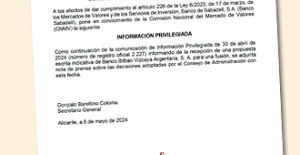 Sabadell rejects the merger with BBVA and will fight to remain alone
Sabadell rejects the merger with BBVA and will fight to remain alone In Germany, the far left wants to cap the price of “doner kebabs”
In Germany, the far left wants to cap the price of “doner kebabs” Israel-Hamas war: Gaza between hope of truce and fear of Israeli offensive in the South
Israel-Hamas war: Gaza between hope of truce and fear of Israeli offensive in the South “Mom, Dad, please don’t die”: in the United States, a nine-year-old child saves the lives of his parents injured in a tornado
“Mom, Dad, please don’t die”: in the United States, a nine-year-old child saves the lives of his parents injured in a tornado The presence of blood in the urine, a warning sign of bladder cancer
The presence of blood in the urine, a warning sign of bladder cancer A baby whose mother smoked during pregnancy will age more quickly
A baby whose mother smoked during pregnancy will age more quickly The euro zone economy grows in April at its best pace in almost a year but inflationary pressure increases
The euro zone economy grows in April at its best pace in almost a year but inflationary pressure increases Children born thanks to PMA do not have more cancers than others
Children born thanks to PMA do not have more cancers than others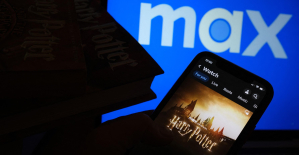 “House of the Dragon”, “Succession”… Max, the new streaming platform from HBO and Discovery, launched in France on June 11
“House of the Dragon”, “Succession”… Max, the new streaming platform from HBO and Discovery, launched in France on June 11 The A13 motorway will finally reopen this Friday, in one direction only
The A13 motorway will finally reopen this Friday, in one direction only TNT commission of inquiry: tensions between LFI deputies and Macronists before the vote on the report
TNT commission of inquiry: tensions between LFI deputies and Macronists before the vote on the report Apple unveils a new, more efficient iPad range
Apple unveils a new, more efficient iPad range The Gaza War invites itself to the 2024 Pulitzer Prizes
The Gaza War invites itself to the 2024 Pulitzer Prizes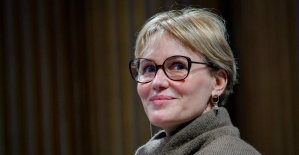 Judith Godrèche presents a short film on sexual violence in Cannes
Judith Godrèche presents a short film on sexual violence in Cannes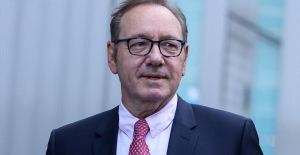 Kevin Spacey: new trial in sight in London for the American actor, for sexual assault
Kevin Spacey: new trial in sight in London for the American actor, for sexual assault Taylor Swift fans make London pub Black Dog their new place of pilgrimage
Taylor Swift fans make London pub Black Dog their new place of pilgrimage Omoda 7, another Chinese car that could be manufactured in Spain
Omoda 7, another Chinese car that could be manufactured in Spain BYD chooses CA Auto Bank as financial partner in Spain
BYD chooses CA Auto Bank as financial partner in Spain Tesla and Baidu sign key agreement to boost development of autonomous driving
Tesla and Baidu sign key agreement to boost development of autonomous driving Skoda Kodiaq 2024: a 'beast' plug-in hybrid SUV
Skoda Kodiaq 2024: a 'beast' plug-in hybrid SUV The home mortgage firm rises 3.8% in February and the average interest moderates to 3.33%
The home mortgage firm rises 3.8% in February and the average interest moderates to 3.33% This is how housing prices have changed in Spain in the last decade
This is how housing prices have changed in Spain in the last decade The home mortgage firm drops 10% in January and interest soars to 3.46%
The home mortgage firm drops 10% in January and interest soars to 3.46% The jewel of the Rocío de Nagüeles urbanization: a dream villa in Marbella
The jewel of the Rocío de Nagüeles urbanization: a dream villa in Marbella Institutions: senators want to restore the accumulation of mandates and put an end to the automatic presence of ex-presidents on the Constitutional Council
Institutions: senators want to restore the accumulation of mandates and put an end to the automatic presence of ex-presidents on the Constitutional Council Europeans: David Lisnard expresses his “essential and vital” support for François-Xavier Bellamy
Europeans: David Lisnard expresses his “essential and vital” support for François-Xavier Bellamy Facing Jordan Bardella, the popularity match turns to Gabriel Attal’s advantage
Facing Jordan Bardella, the popularity match turns to Gabriel Attal’s advantage Europeans: a senior official on the National Rally list
Europeans: a senior official on the National Rally list These French cities that will boycott the World Cup in Qatar
These French cities that will boycott the World Cup in Qatar “The future is for us”: “disappointed” and “proud” at the same time, Al-Khelaïfi sees the glass half full after the elimination of PSG
“The future is for us”: “disappointed” and “proud” at the same time, Al-Khelaïfi sees the glass half full after the elimination of PSG PSG: “Since January, these have not been my best matches,” agrees Zaire-Emery, who promises to “come back stronger”
PSG: “Since January, these have not been my best matches,” agrees Zaire-Emery, who promises to “come back stronger”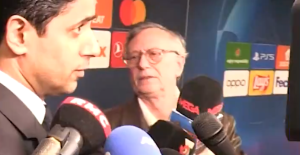 “What is this question, honestly?” : Nasser Al-Khelaïfi (very) annoyed after PSG-Dortmund
“What is this question, honestly?” : Nasser Al-Khelaïfi (very) annoyed after PSG-Dortmund “I am the guy who has to score the goals”: Mbappé does not hide and assumes responsibility after PSG’s exit
“I am the guy who has to score the goals”: Mbappé does not hide and assumes responsibility after PSG’s exit







